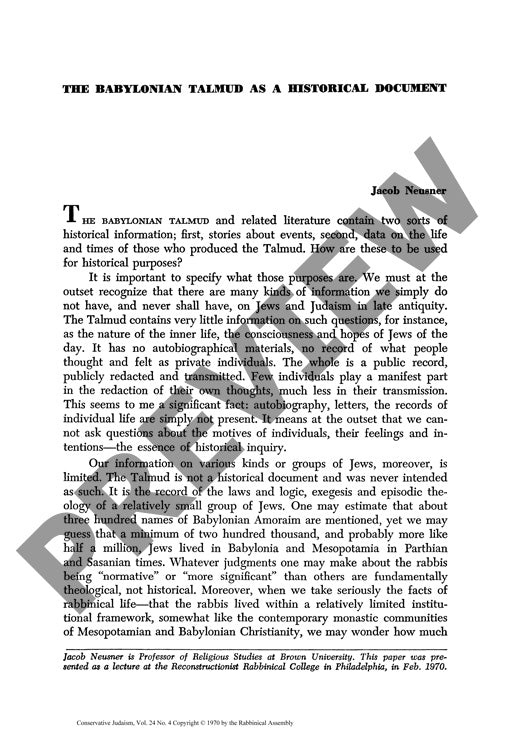The Babylonian Talmud as a Historical Do
Couldn't load pickup availability
The Babylonian Talmud presents historians with a paradox: while faithfully preserving the worldview and social structures of rabbinic circles, it offers surprisingly limited insights into the broader Jewish populations of late antiquity. Through form-critical analysis and comparative textual examination, this research investigates the Talmud's dual nature as both a historical document and an ideologically shaped text. Drawing on theoretical frameworks of power dynamics, mythic beliefs, and institutional systems, the analysis reveals how later editorial processes transformed earlier teachings - particularly evident in the variant traditions of Yohanan b. Zakkai - to align with contemporary values. The Talmud emerges as a complete and accurate record of its compilers' perspective, yet requires methodical form-critical analysis to distinguish authentic historical information from pseudepigraphic materials. By identifying specific textual viewpoints and separating scholarly content from propagandistic elements, this study establishes methodological principles for extracting historically valuable information about rabbinic institutional life and religious imagination, while challenging fundamentalist assumptions about textual reliability. These findings demonstrate how talmudic sources, when properly interrogated, illuminate the complex social and intellectual world of rabbinic Judaism.

More Information
-
Physical Description
-
Publication Information
Published 1970
ISBN
-
Publication Credits
Jacob Neusner

